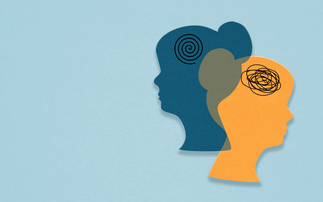The stigma surrounding depression is still prevalent in society and affects people's expectations of the workplace, according to new research.
The study, published in The Lancet, revealed a quarter (25%) had not applied for work at some point because they expected that they would be discriminated against.
It also found that almost half (47% - 316) of the 688 respondents currently employed who suffer from depression had anticipated being discriminated against in finding or keeping a job.
However, only just over half of this group (53% - 169) said they had actually been discriminated against in these situations - a total of 24.5% in all.
Research leader Professor Graham Thornicroft from King's College London's Institute of Psychiatry said: "Our findings show that discrimination related to depression is widespread, and almost certainly acts as a barrier to an active social life and having a fair chance to get and keep a job for people with depression.
"Previous work in this area has tended to focus on public attitudes towards stigma based on questions about hypothetical situations, but ours is the first study to investigate the actual experiences of discrimination in a large, global sample of people with depression."
Overall, more than three quarters (79%) of people with depression reported having experienced some form of discrimination.
Over a third (34%) of participants reported that they had been avoided or shunned by other people because of their mental health problems while anticipated discrimination had prevented over a third (37%) of participants from initiating a close personal relationship.
The issue of stigma attached to depression was highlighted by almost three quarters (71%) of participants saying they actively wished to conceal their depression from other people.
This prompted concerns that people with depression may be put off from seeking treatment due to fears of discrimination if they disclosed their condition - so that they would not benefit from treatment, as a result of which the condition would be more likely to become chronic.
An international team of researchers, led by Professor Thornicroft, used detailed questionnaires to ask 1082 people being treated for depression in 35 different countries about their experiences of discrimination.











